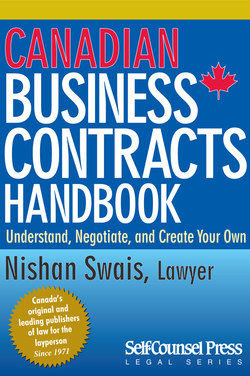Читать книгу Canadian Business Contracts Handbook - Nishan Swais - Страница 54
На сайте Литреса книга снята с продажи.
4.1 Mistake
ОглавлениеIn Chapter 1, we discussed the importance of mutuality when contracting. We said that if there is no “meeting of minds,” there is no contract. So how does the law approach a situation where there is a meeting of minds, but the parties to the contract simply made a mistake?
If the mistake concerns an essential term of the contract, a court will determine that no contractual relationship existed and invalidate the contract.
For example, if I offer to sell you my “axe” for $50 and you accept, believing that I mean to sell you my vintage electric guitar, when what I really mean is the old hatchet in my garage, then there is a mutual mistake. Moreover, that mistake is a mistake concerning an essential term of the contract, meaning, it goes to the very heart of the contract (indeed, the very thing contracted for). Neither party would — nor should they, logically speaking — be able to seek compensation if the other party fails to perform.
In other words, I could not legally compel you to buy my old hatchet for $50 and you could not obtain my vintage electric guitar for that price. Effectively, a court will determine that, despite our intention to contract for an axe, no contractual relationship will have been found to exist and the contract will be invalidated.
What happens in the case where a mistake does not concern an essential term? Returning to our earlier example, suppose that you agreed with the buyer to deliver the forklift on September 31? Of course, no such date exists. Clearly, someone made a mistake. The mistake may even have been mutual. You both may have thought that there is a September 31.
In this case, it is reasonable for a court not to invalidate a contract because the mistake does not concern an essential term of the contract. It concerns only a relatively minor aspect of the deal to purchase the forklift (the delivery date) and one that can be easily corrected without unfairly prejudicing either party. Specifically, the forklift could be delivered either on September 30 or October 1 with (presumably) neither party having been particularly injured by that decision. A court would simply correct the mistake by choosing one of those dates and “reading it into” the contract in the case of a dispute. The court would not invalidate the contract.
